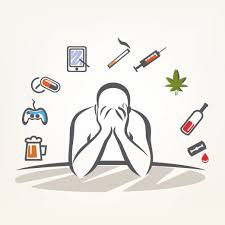Early Warning Signs of Drug-Induced Psychosis You Shouldn’t Ignore
- Collective Care

- Sep 20, 2025
- 2 min read
At Collective Care Center, recognized as a top recovery clinic near Mumbai, we often see families struggle to understand the sudden behavioral and psychological changes in their loved ones after prolonged substance use. One of the most concerning conditions is drug-induced psychosis—a state where individuals lose touch with reality due to the impact of substances on the brain.
What is Drug-Induced Psychosis?
Drug-induced psychosis occurs when the use of substances like cannabis, cocaine, amphetamines, hallucinogens, or even excessive alcohol triggers symptoms such as hallucinations, delusions, paranoia, and disorganized thinking. Unlike schizophrenia or bipolar psychosis, drug-induced psychosis often emerges shortly after consumption and may resolve with abstinence—but in some cases, it can progress into long-term psychiatric disorders if not addressed promptly.
Scientific Evidence
A landmark study published in The Lancet Psychiatry (2019) found that daily cannabis use, particularly high-potency strains, increased the risk of psychosis five-fold compared to non-users.
Research in JAMA Psychiatry (2020) highlights that stimulant-induced psychosis (from cocaine or methamphetamine) shares striking similarities with schizophrenia, suggesting that repeated episodes could increase long-term vulnerability.
The World Health Organization (WHO) notes that substance-induced psychotic disorders are more common in young adults, often overlapping with anxiety, depression, and other mental health conditions.
Early Warning Signs You Shouldn’t Ignore
Hallucinations – Seeing, hearing, or feeling things that are not real.
Delusional Thinking – Believing false ideas such as being followed, controlled, or having special powers.
Extreme Paranoia – Persistent fear or suspicion without evidence.
Disorganized Speech or Behavior – Difficulty communicating or acting in ways that seem disconnected from reality.
Rapid Mood Swings – Sudden shifts from euphoria to fear, aggression, or deep sadness.
Withdrawal from Family or Friends – Social isolation and a preference for being alone.
Poor Self-Care – Neglecting hygiene, eating, or sleeping patterns.
Recognizing these signs early can make a difference between short-term recovery and long-term psychiatric complications.
Why Early Intervention Matters
At Collective Care, we emphasize early psychiatric assessment and evidence-based therapy for individuals showing warning signs of drug-induced psychosis. Families often search for a “mental health rehabilitation near me” when crises occur, but the best outcomes come from seeking help before the condition worsens.
Our psychiatric and therapeutic rehab centre provides a multidisciplinary approach:
Medical management for psychotic symptoms and substance withdrawal.
Treatment for anxiety, depression, and substance use disorders that frequently coexist with psychosis.
Holistic recovery including mindfulness, yoga, and meditation to restore mental balance.
Family therapy and education to build a supportive recovery environment.
The Collective Care Perspective
As a rehab centre with mental health expertise, we believe that recovery is possible with the right blend of compassion, science, and structured care. While drug-induced psychosis can be frightening, timely recognition and treatment prevent it from evolving into a chronic psychiatric disorder.
If you notice any of these early signs in yourself or a loved one, do not ignore them. Seek help immediately from a specialized facility like Collective Care Center, where healing is guided by both clinical evidence and holistic support.


